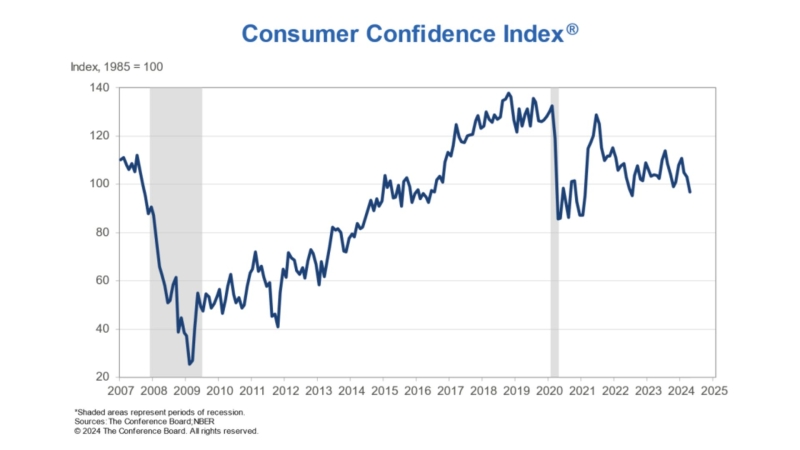Goal Diggers: The Power Of Setting Aspirations

Balancing ambitious expectations with practical objectives
Setting goals is a hard task. Meeting goals is a Herculean one. Does it really have to be, though?
It was a lethargic market in 2023. According to Federal Reserve Economic Data, estimated vacant housing units for sale in the United States sunk to a 20-year low while the average rate for a 30-year fixed-rate mortgage rose to a 20-year high.
This substantial fluctuation can present challenges when setting goals for 2024. Bridget Taylor, customer relationship management (CRM) program director at Delmar Mortgage, has seen it all when it comes to the mortgage industry. She knows the marketing tips and tricks, as well as how to better utilize a CRM system to maximize efficiency. More importantly, she knows how to create realistic goals with actionable items to achieve them. So, what are they?
It's first important to appreciate Taylor’s experience before understanding how to set and meet realistic goals for 2024. Her knowledge in the mortgage arena is boundless, and her marketing and technological capabilities are far-reaching. Her previous roles include but are not limited to Director of Marketing at Pioneer Bank for 11 years and multiple marketing management positions at PrimeLending spanning five years. Her specialization in CRMs came naturally, however.
“It’s more of a matter of circumstance,” said Taylor when asked how she landed in her current role. “At PrimeLending, I oversaw the retail side of marketing – anything loan officer related.”
However, after their program director resigned, Bridget was left with added responsibilities. “I kept all my responsibilities plus her role in launching a new platform.” This experience provided Bridget the opportunity to learn from the bottom up of creating automation that leads to a more efficient workday for loan officers. Candidly, she knows what loan officers want and how to make it happen.
Strength vs. Weakness
It’s this experience and expertise that allow Bridget to effectively set and achieve strong goals, especially for loan officers and mortgage professionals. To create strong goals, though, you have to recognize weak goals. Every loan officer wants to meet production levels they’ve set out for themselves, but does that serve as a strong goal for the new year?
“Loan officers in general, their number one goal is going to be production levels,” said Taylor. “Any loan officer you talk to is going to say they want to increase their production by 20% or so.”
While an increase in production is always great, Bridget continues to add the importance of looking past the numbers and closer at how you plan to get there.
“Then, it’s figuring out who are your customers, and where do you see the most opportunity in your markets and audience,” said Taylor. “Now that we know who your customers are and where you see the most opportunity, it’s about bringing them down another level to thinking about how we retain these customers and how to message toward them.”
Keep Your Customers
Here, Taylor highlights the first goal loan officers should be setting for themselves, and it’s an obvious one: Retain your current customers. Acquiring new customers is typically the most expensive marketing strategy. However, the expense to acquire the customers in your CRM, or any database, has already been made. Yes, every good loan officer knows the importance of consistent communication to past clients and customers, but this becomes time-consuming as your database grows.
Using a CRM is one way to help automate this communication so you can take back time for more important tasks, like originating loans. A CRM can streamline lead management, automate tasks and workflow, track analytics and reporting, and automate basic communication among other things.
“Automation is not here to replace the loan officer. It’s here to enhance their strategies and what they’re trying to accomplish,” Taylor said. “From a retention perspective, it’s about using automation to deliver the right kind of message at the right time to those existing customers.”
Simply put, a CRM allows loan officers to spend their time on more meaningful business. For a lot of loan officers, more time spent on meaningful business, like originating loans, means more money made. See how a CRM is beginning to help you meet production goals?
Automating communication isn’t the be-all and end-all for meeting production goals, however. As previously mentioned, a CRM can help with reporting and tracking analytics. But what are the metrics you should be tracking that will help you reach your production goals?
Not All Are Achieved
“You’ll see loan officers have set goals for the year of partnering with referral partners,” said Taylor. “Referral partners aren’t just Realtors anymore. They’re financial advisors, insurance agents, pretty much anybody in the financial sector that can help our loan officers bring that continued need and value from a financial approach.”
Instead of setting out a goal of making a certain amount of dollars, try setting out a goal of meeting a certain amount of new referral partners. Maybe you already have enough Realtors at your disposal. Use Taylor’s advice and find new sources of referrals. Don’t forget the importance of communication with referral partners as well, not just customers. You can use a CRM to send consistent and targeted messages toward these partners to ensure they don’t forget about your services and they’re always ready to recommend.
Of course, no matter what goals you set for yourself in 2024, there’s always the chance they won’t be achieved. Don’t be discouraged though! There are often factors outside of your control that will affect your business, especially in the mortgage industry. No matter the reason the goal wasn’t met, there are still things you can do to reach it in the future.
“You may not hit your goal, but what changes can you make now that you think will help you hit it next year,” said Taylor. The mortgage industry is cyclical and constantly fluctuates, and sometimes your goals need to reflect this. “We need to know and understand that your goals are going to change a lot throughout the year, and that’s ok.”
Keep, Start, Stop
There is one essential strategy Taylor recommends mortgage professionals and loan officers employ when evaluating goals. It’s the keep, start, stop strategy. Identify and keep the actions that have led to positive progress in achieving your goals. Identify the factors that have served as barriers to achieving your goal, both in your control and out of it, and find out what you need to do to stop those actions from hindering your progress. If you missed the mark on your original plan, start implementing new actions that will make positive progress toward achieving your goal.
Taylor still understands that in this business there needs to be return on investment. The return on investment for spending time setting goals and learning how to use a CRM is all about adding efficiencies.
“Money is all in the game of efficiencies,” said Taylor. “Most loan officers have a very strategic and processed way of doing their days. A lot of times they use Excel sheets which require manual updates, logging notes and things of that nature. For me, it’s all about having them show me one thing that brings them value and money, and then showing them how we can automate it within the CRM tool.”
Becoming more efficient in your workday is the quickest way Taylor bridges the gap of a CRM helping loan officers meet production levels. Although she knows return on investment and increased production levels all lead to a greater income, she advises against allowing those factors to determine your happiness. Her best advice is to take nothing personally. She notes that the mortgage industry often doesn’t feel as rewarding as it should, and it’s easy to get frustrated with your production or lack thereof.
Wealth Builder
“This is all business,” said Taylor. “For me, loan officers’ primary goal is to put an individual or a family in a home. This is a wealth builder, and there are days when you sometimes have to sit back and remember that although you may not have closed a deal or gotten a family in a home today, there will be plenty of days for us to have that experience and know that someone will achieve probably the biggest financial goal they have set out for themselves. As mortgage professionals, we’ve helped them do that.”
Creating realistic goals with actionable items to achieve them can be powerful in becoming a better loan officer. Try using some of Taylor’s strategies and advice when setting goals for next year so you know you’re leaving no stone unturned and helping as many people as you can to create lasting wealth.
Jack Dunn is a marketing associate at Delmar Mortgage.





